Share This
Videos and Photos1 April 2016
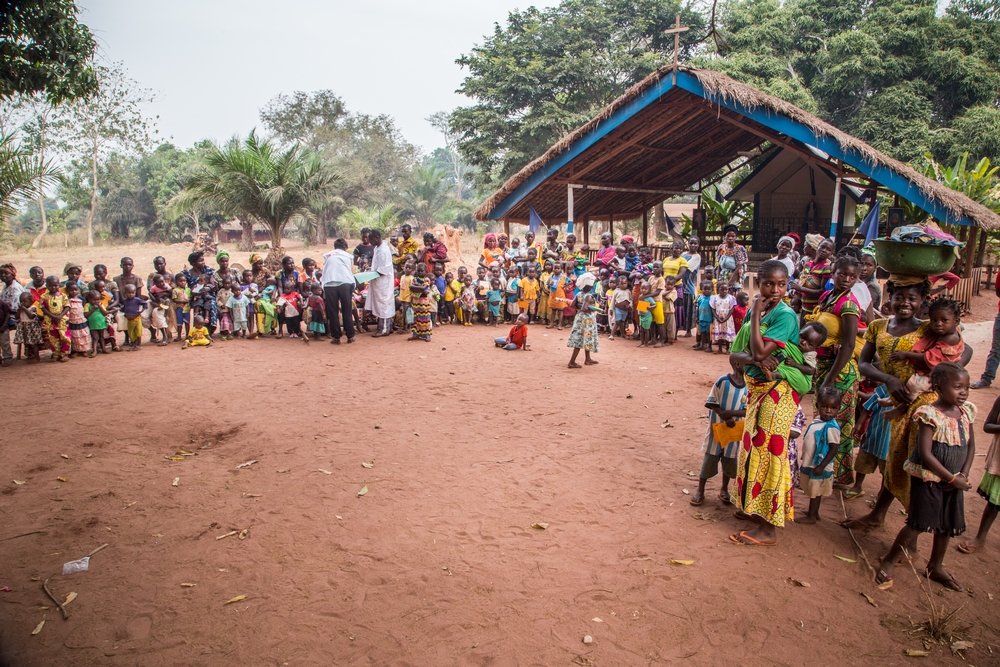
Vaccination in Berberati. Attendance is very high. It seems that awareness has paid off. 14,000 children were vaccinated in five days.
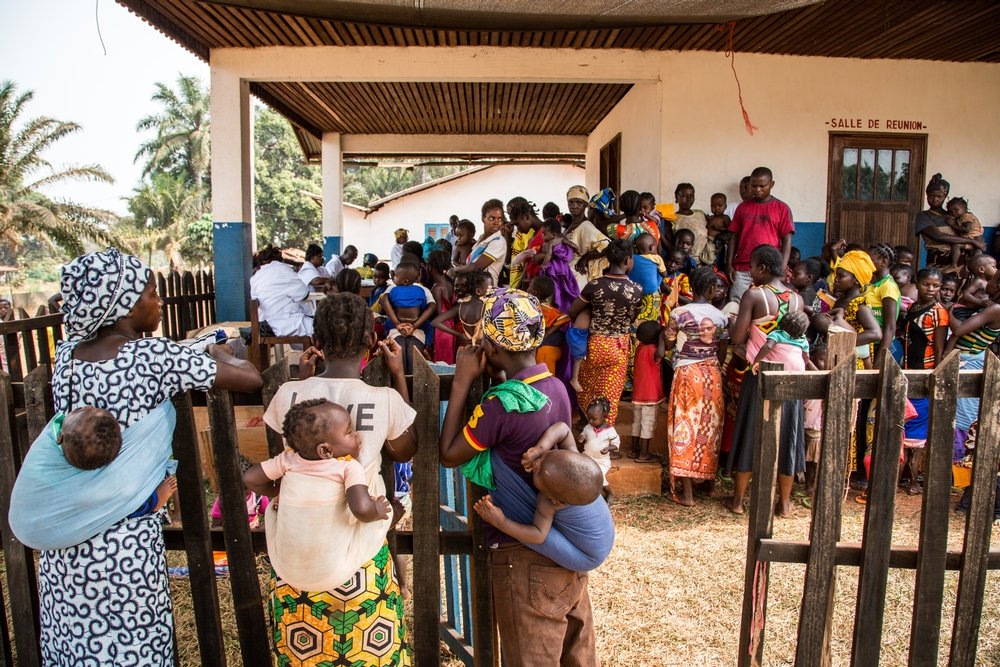
An unprecedented vaccination campaign is underway in the CAR to vaccinate as many children as possible in the country against some of the most common preventable diseases.
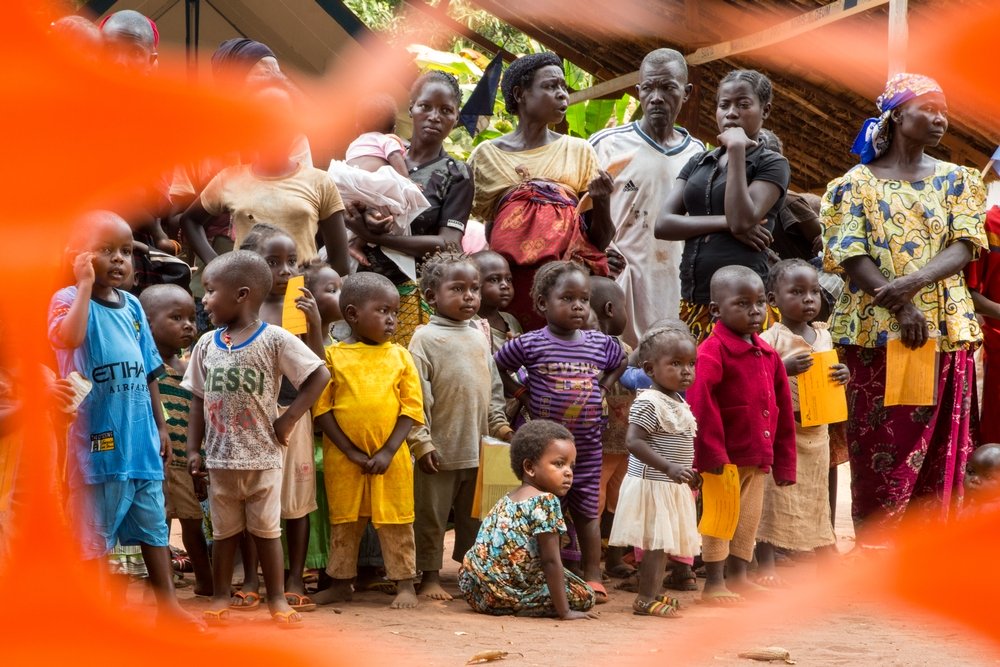
Immunisation coverage was already very low before the outbreak of violence in 2013. Today, less than 15% of children are fully protected against childhood diseases and epidemics occur regularly.
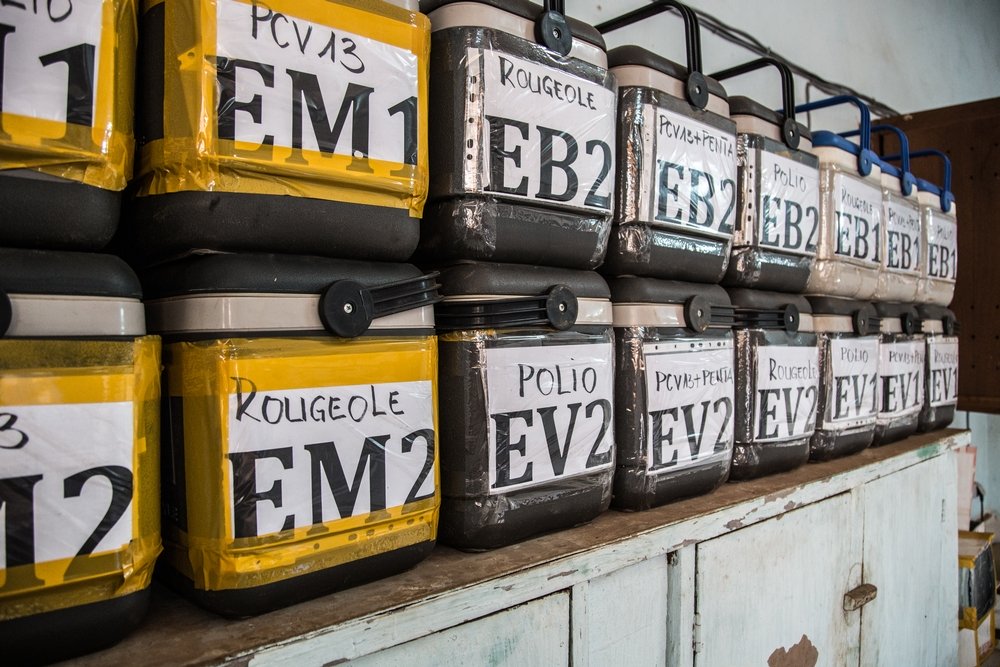
Although effective vaccines exist against polio, tetanus, diphtheria, whooping cough, hepatitis B, measles and certain forms of pneumonia and meningitis, these diseases continue to kill children in the CAR because they cannot get immunised. The vaccination programme organised by MSF is a catch-up campaign, which means children are getting vaccinations they should have already received.
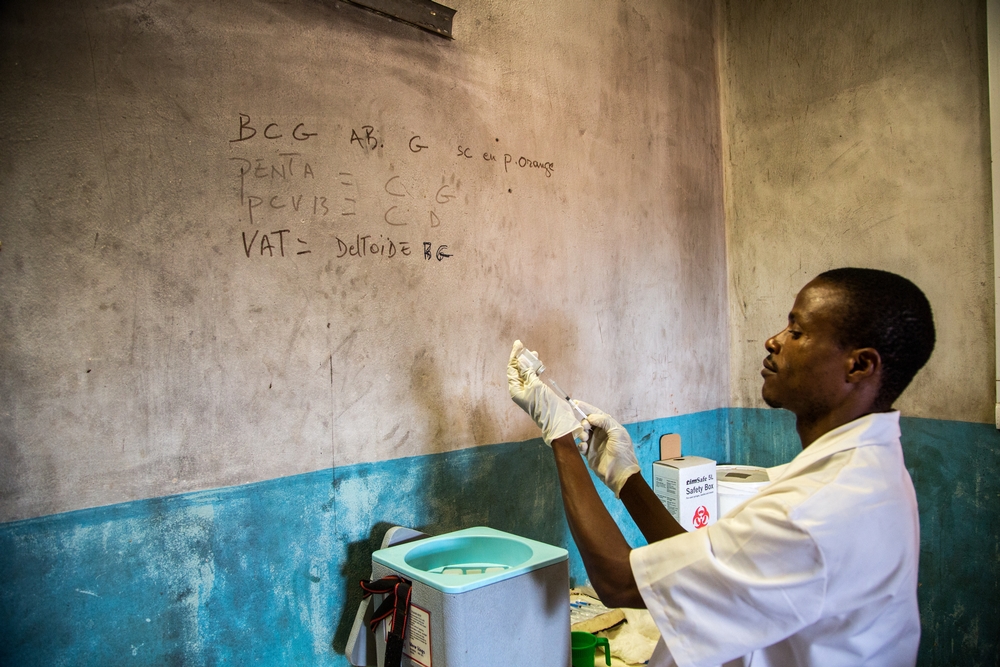
MSF also supports the CAR’s National Programme, which is supposed to vaccinate all children through a predefined timetable. Unfortunately, difficulties of accessibility, the failures of the health system and the recent surge in violence have interrupted the programme for a long period.
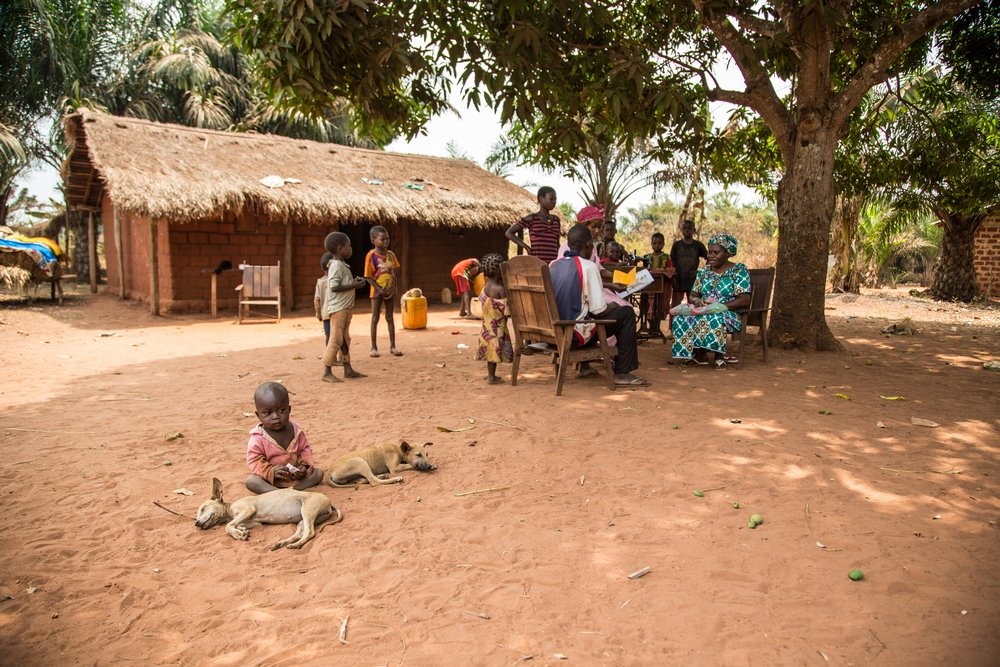
Awareness sessions are organised in the villages to introduce the vaccination campaign, convince parents to get their children vaccinated and to explain possible side effects.
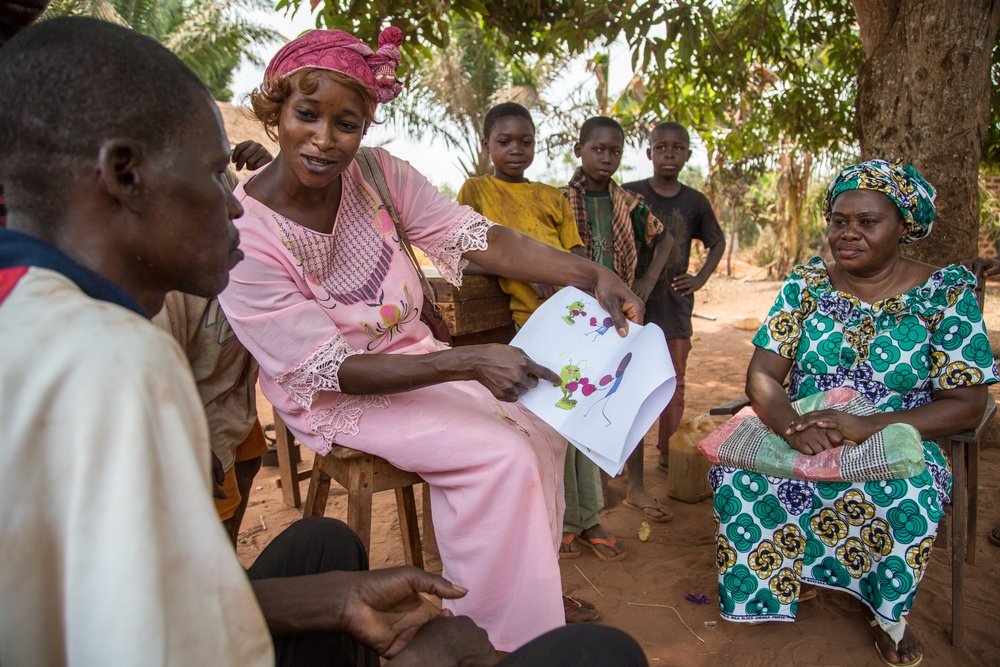
Receiving multiple vaccinations simultaneously can negatively impact a child's metabolism. Parents are informed of possible side effects that could arise and paracetamol is distributed to prevent them.
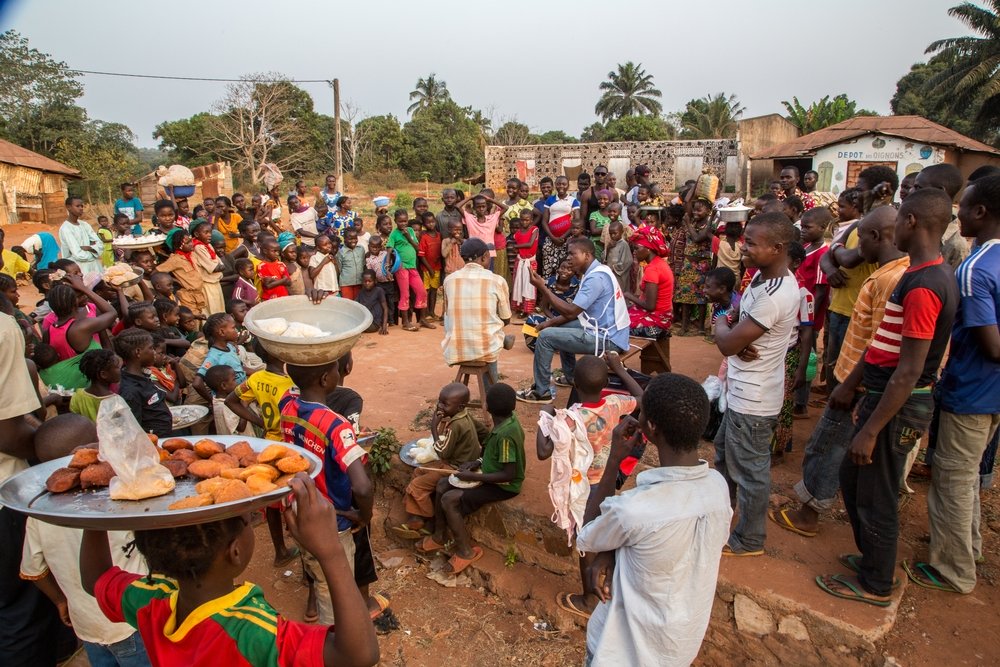
To reach as many people as possible and address the issue of vaccination in a fun and non-threatening way, actors perform sketches, which portray adult conversations in a household, as part of MSF’s awareness campaign.
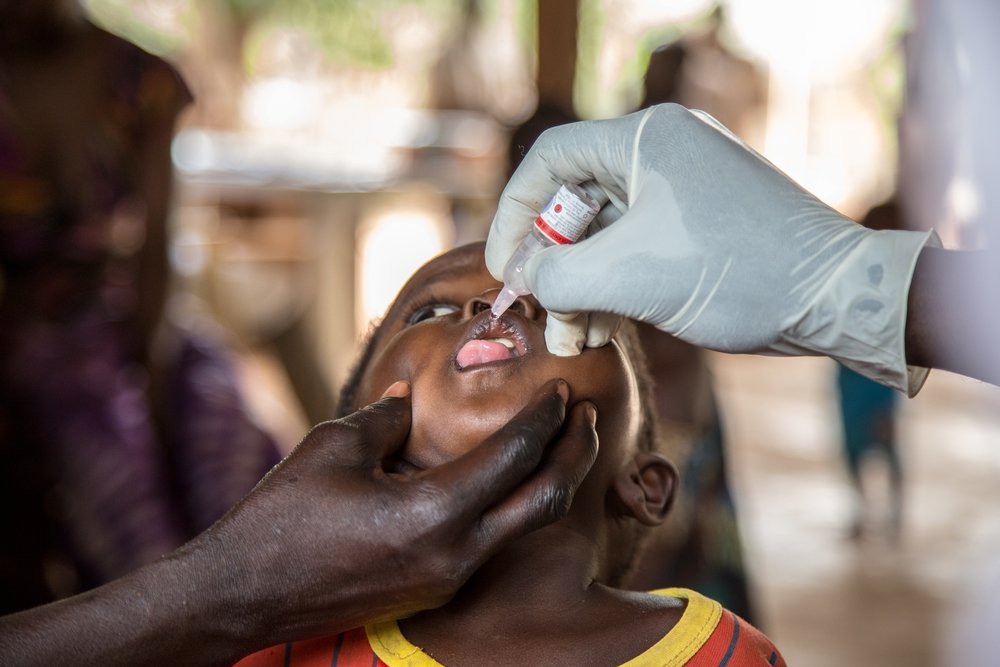
A young child receives an oral vaccine.
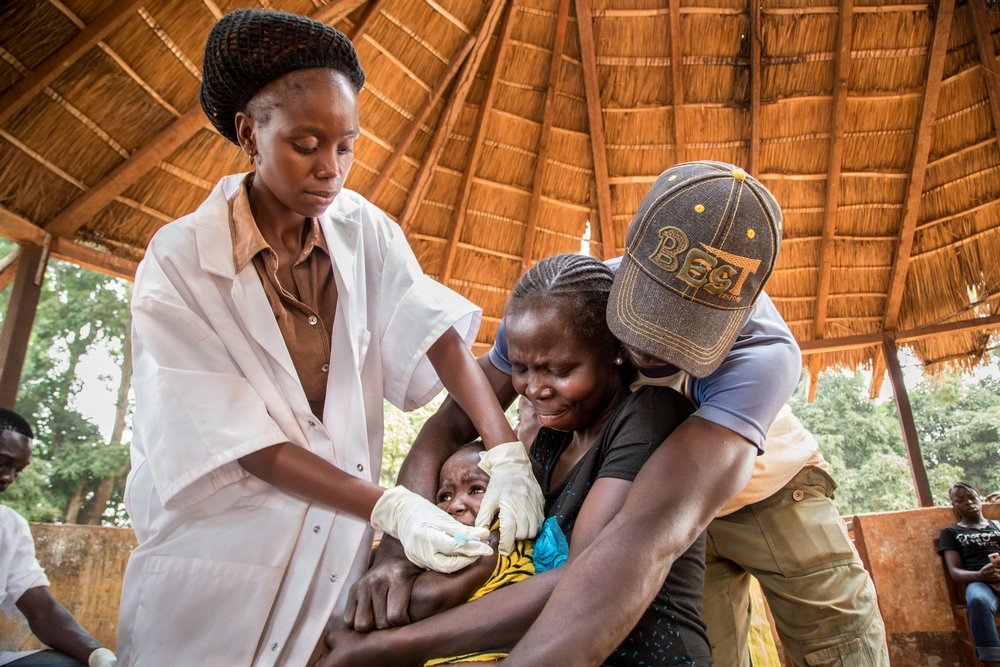
Another child receives their vaccine intramuscularly.

In general, a bit of comfort is enough to make children forget the ordeal.
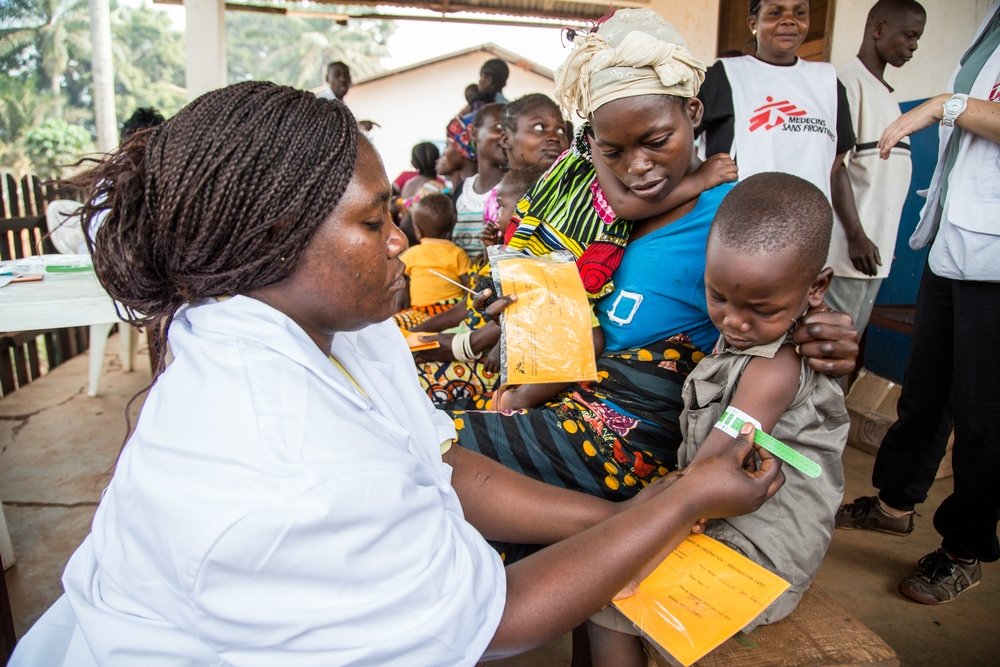
During this campaign, the teams screen all children for malnutrition. Detection is carried out by measuring the circumference of a child’s upper arm with a strap.
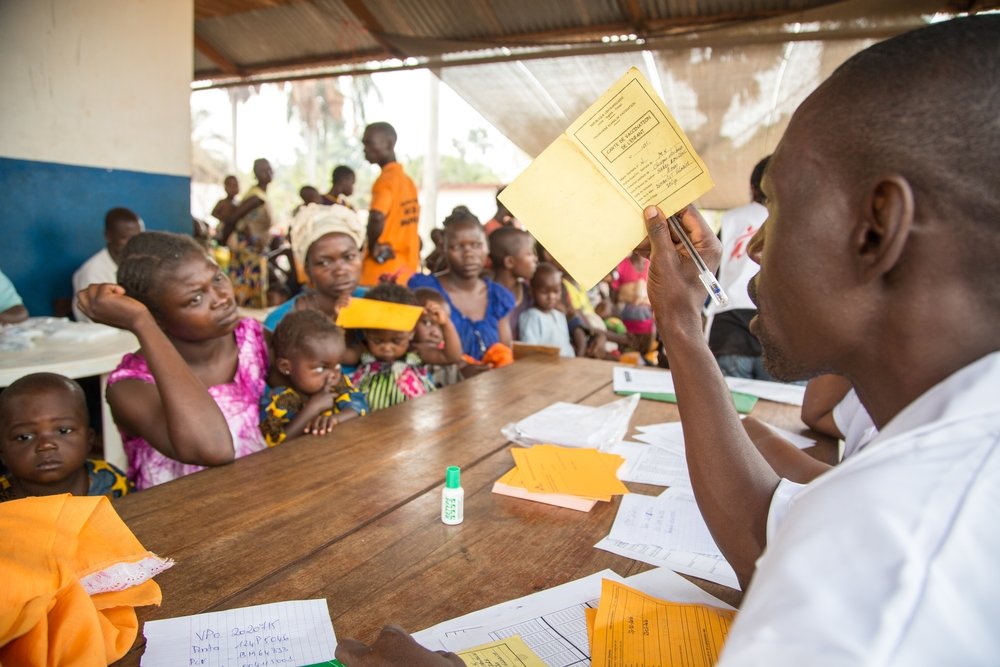
Vaccination is administered in three rounds as some vaccines have multiple doses. Vaccination cards allow for monitoring of immunisation coverage of children. A campaign of this size requires significant financial, logistical and human resources. In Berbérati alone, MSF has deployed 16 mobile teams with 370 medical staff and health promotion workers using dozens of cars and motorbikes stationed at 43 vaccination sites.
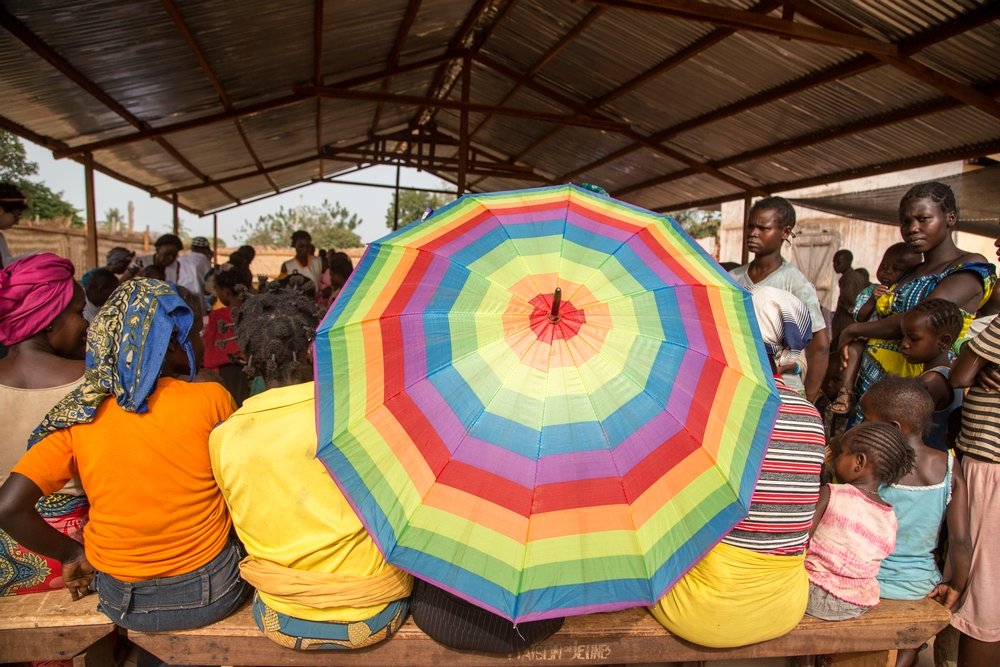
To avoid families having to travel long distances, the campaign was implemented in over 40 different sites in the city of Berberati and its surrounding suburbs. One such site was the Muslim quarter of Potopoto, which was ransacked during the violence of 2013/2014.
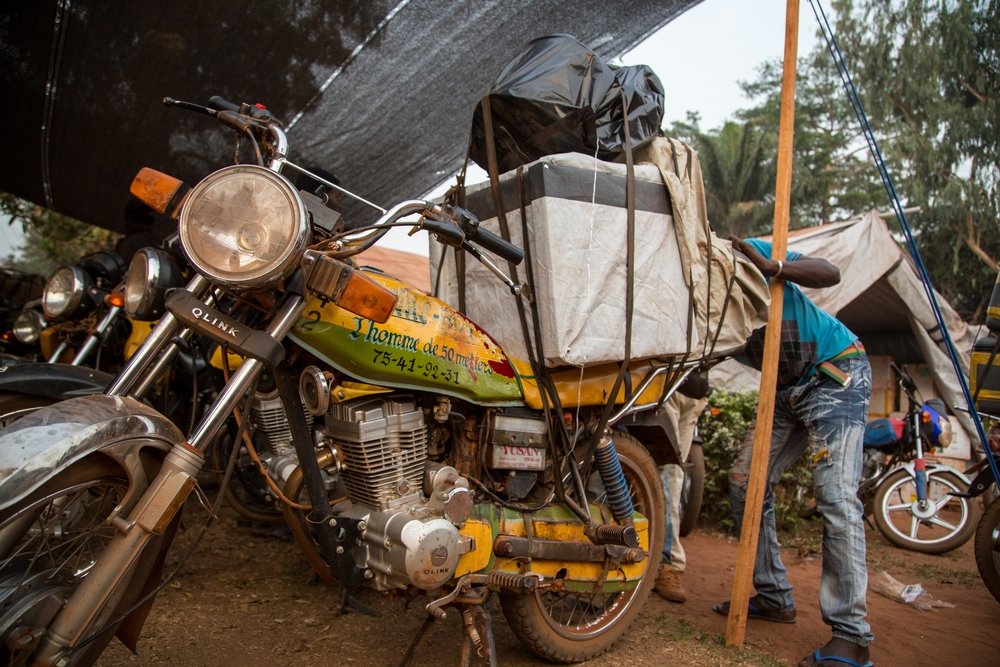
Maintaining a cold chain to keep the vaccines refrigerated can be challenging when the outside temperature is around 40 °C. The vaccine doses are placed in coolers on motorcycles to then be delivered to the vaccination sites.
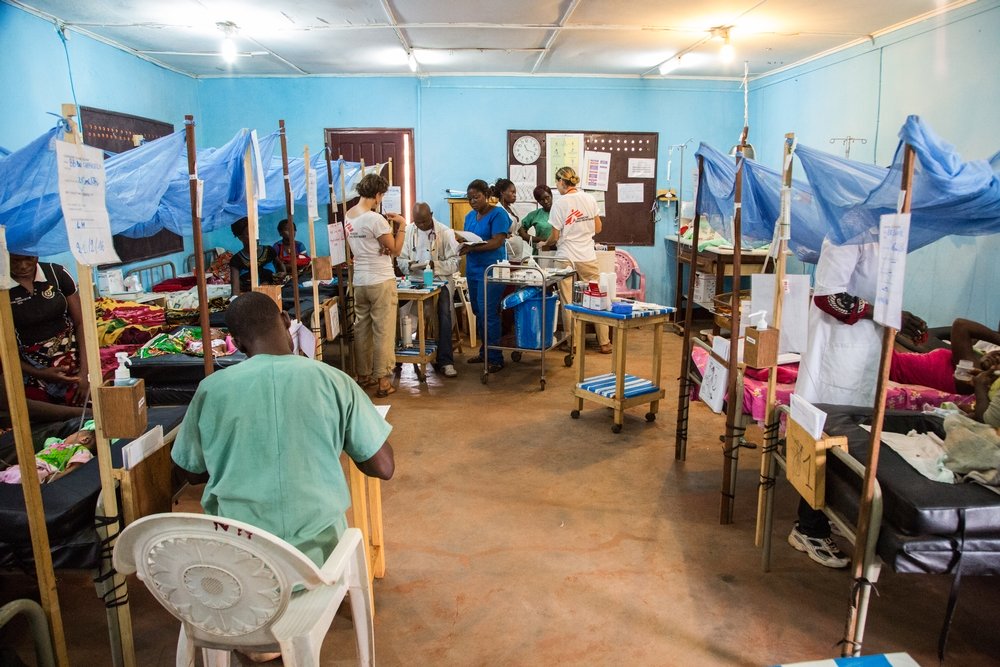
MSF has been present in Berberati since 2014, to help the hospital support the influx of people wounded by conflict. Since then, MSF teams have been working in the general pediatric unit as well as the nutrition, maternity and neonatology units. They also help with the treatment of sexual violence victims at the University Hospital.
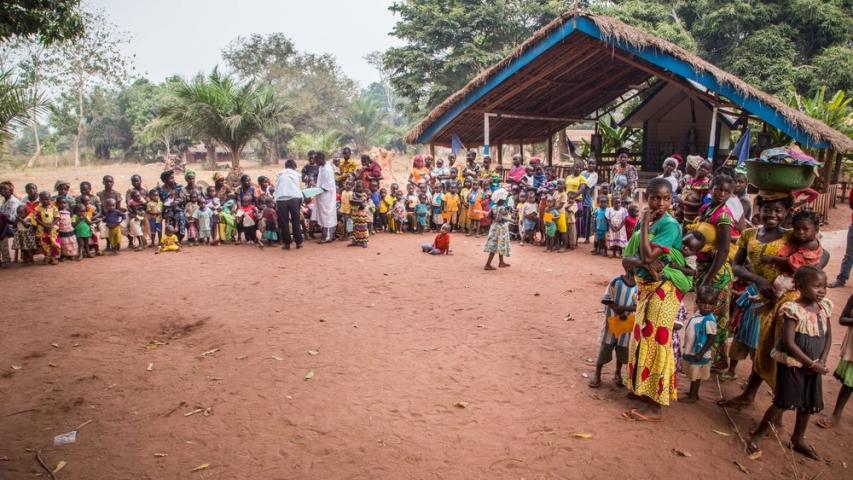
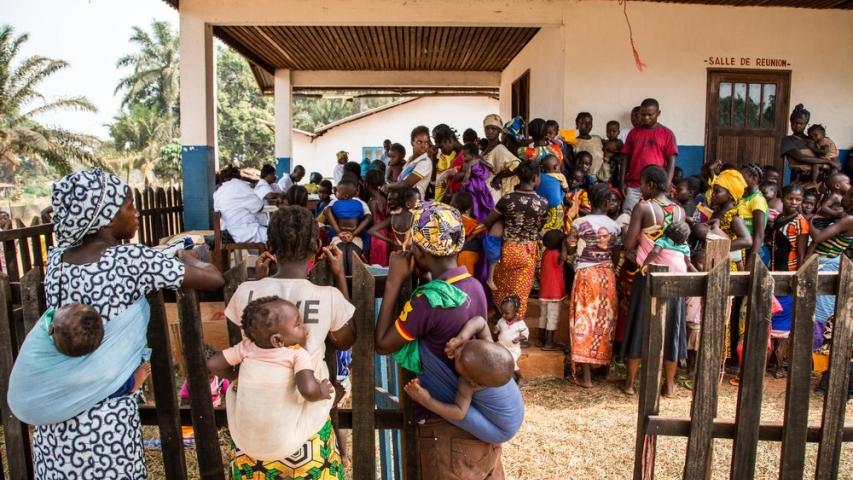
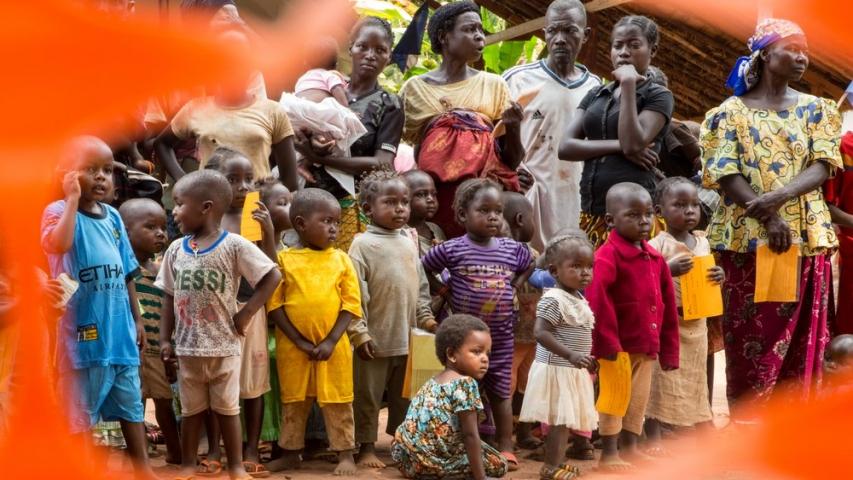

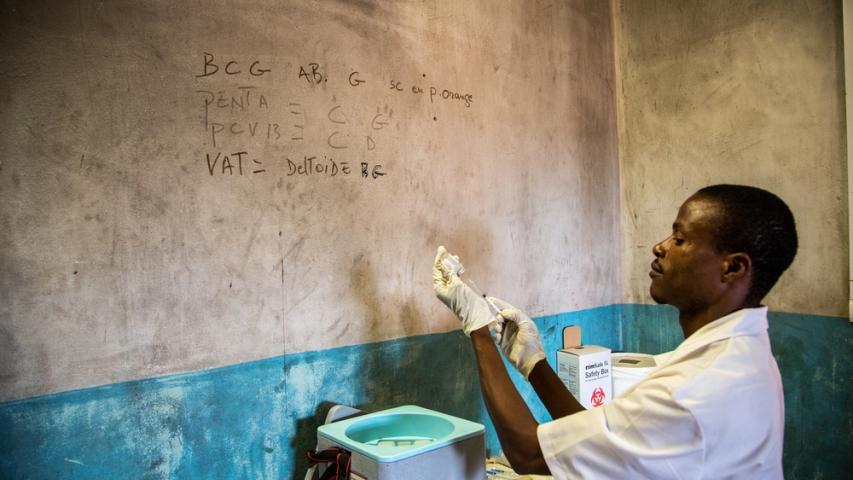
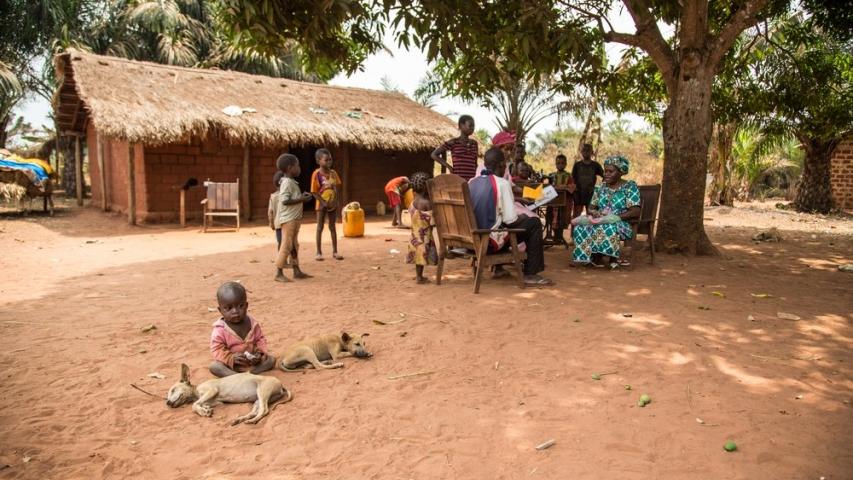
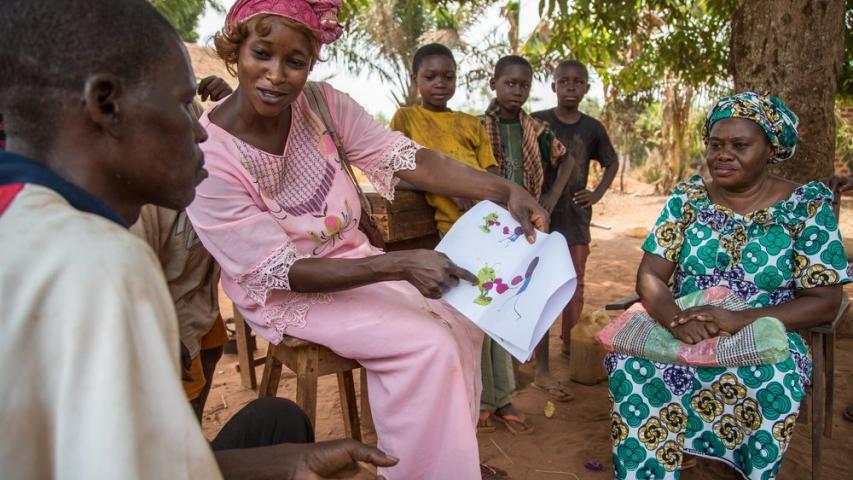

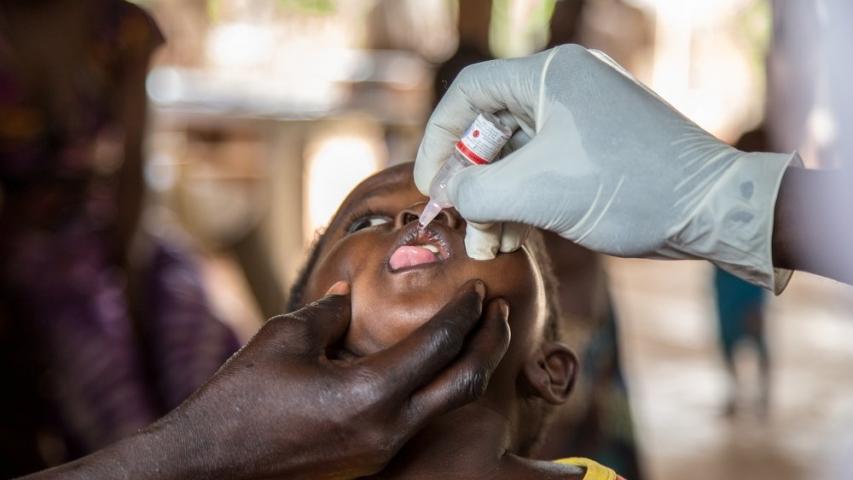
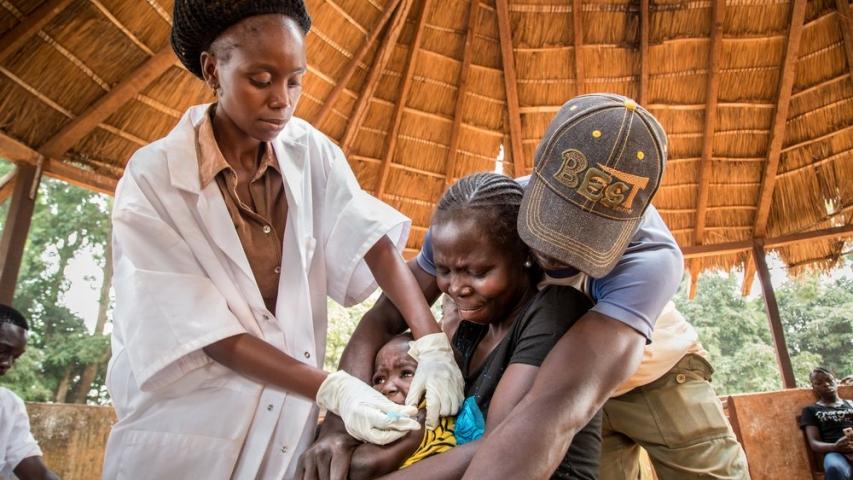

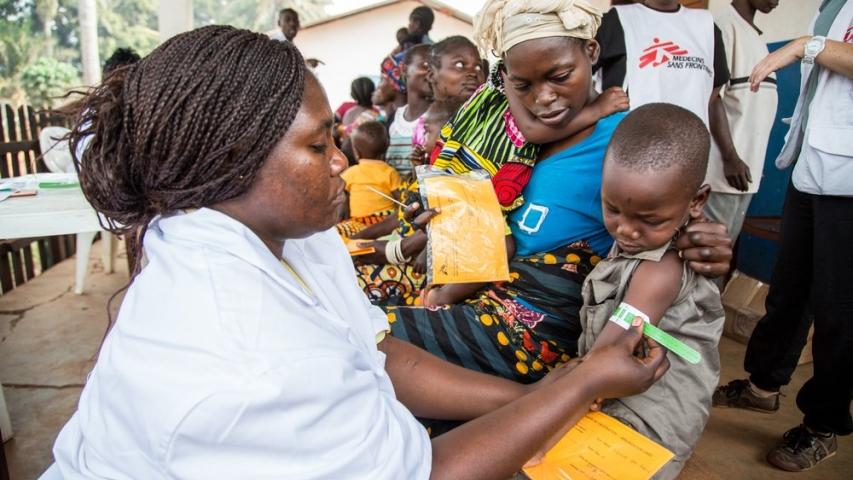

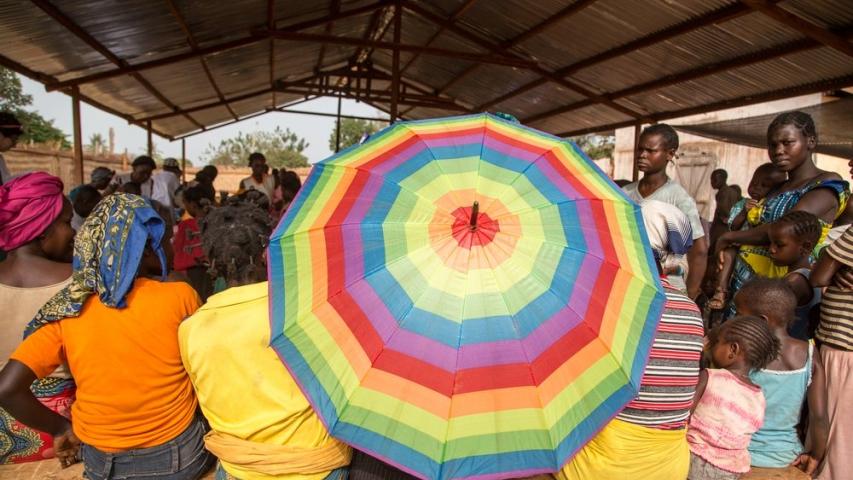
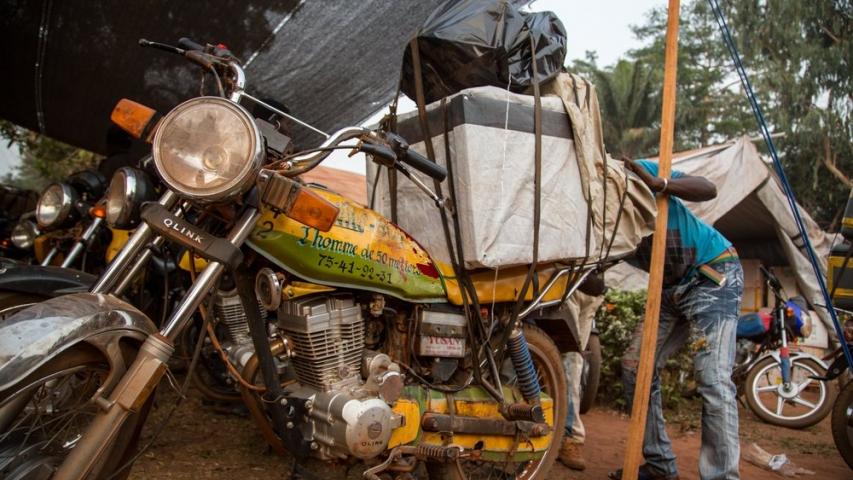
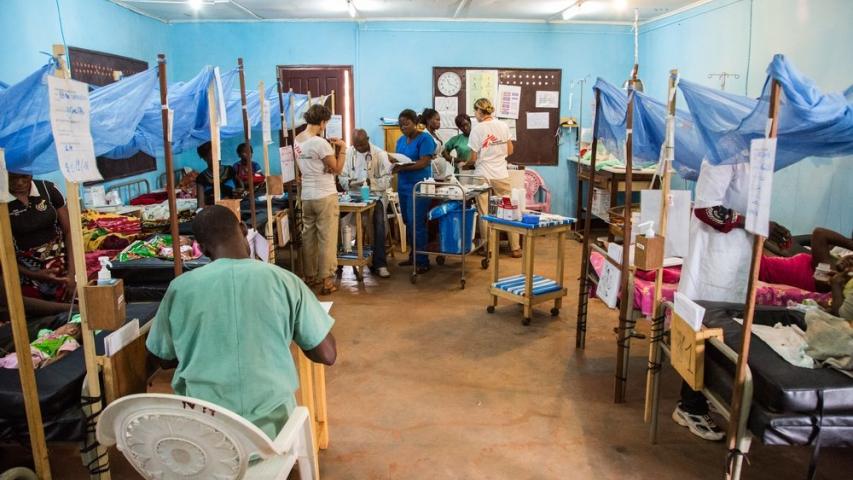
An unprecedented vaccination campaign is under way in the Central African Republic, with the objective of vaccinating as many children as possible against some of the most common preventable diseases. According to official statistics, in 2013 around one in every 10 infants under the age had not been fully vaccinated.
Read: CAR: More than 73,000 children vaccinated in an unprecedented campaign
All photos by: Pierre-Yves Bernard
Find out more about MSF in Central African Republic.
